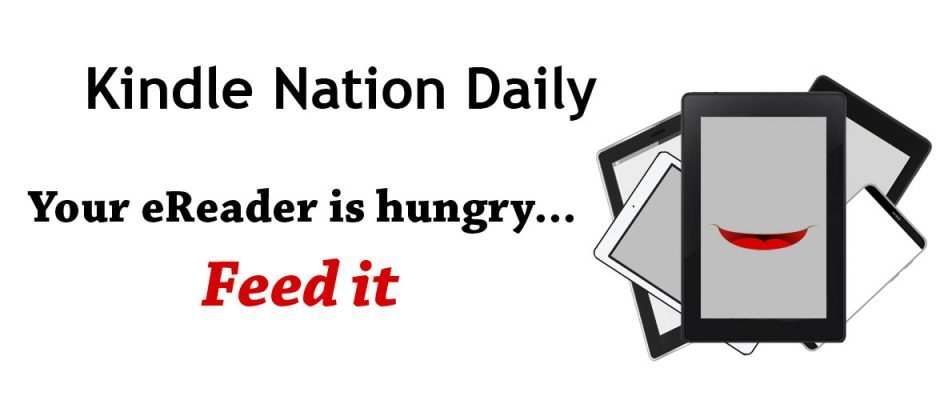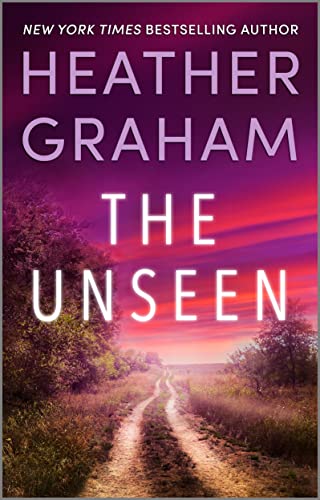On Friday we announced that The Complicity Doctrine (A Casey Shenk Geopolitical Thriller) by Matthew Frick is our Thriller of the Week and the sponsor of thousands of great bargains in the thriller, mystery, and suspense categories: over 200 free titles, over 600 quality 99-centers, and thousands more that you can read for free through the Kindle Lending Library if you have Amazon Prime!
Now we’re back to offer our weekly free Thriller excerpt:
The Complicity Doctrine (A Casey Shenk Geopolitical Thriller)
by Matthew Frick

Three bombs explode in Manhattan. The targets: a church, a synagogue, and a deli.
On the surface, there is no ready explanation for the bomber’s objectives, but when Casey Shenk, an analyst for the private geopolitical consulting firm Intelligence Watch Group discovers an altered report from the Congressional Research Service, he begins to put the pieces together. A murdered Government employee, the rantings of a presidential candidate, and a Senate resolution to take the People’s Mujahideen of Iran off of the list of Foreign Terrorist Organizations all point to something sinister at work inside the Washington power structure. With the help of a New York Police Department detective and the other analysts at IWG, Casey works to uncover the truth behind a network of conspiracy that is operating outside the law, where the ends always justify the means…no matter how many people die.
“This book grips us from the beginning and does not let us go till the end….the author keeps surprises on the horizon with unexpected twists and turns. The story flows well….no slow parts at all and it is full of high energy. All of the main characters are very well rounded and strong in their own right….supported by superb minor characters like Casey’s boss Jim, and fellow co-worker Andie. There is a glimpse into the workings of a political campaign thrown in too. This book is an excellent read and I would highly recommend it.” –Reviewed by Ellen H. for Readers Favorite
“M.M. Frick’s debut novel, Open Source, earned a starred review from BlueInk Review. Now Casey Shenk, the everyman hero, returns in a sequel that is similarly tense but more ambitious and confident….Frick’s thrillers remain heavy on debate and light on action, but they’re just as exciting as their competitors in airport bookshops, and maybe even a little smarter. Readers who enjoy international suspense in the vein of John le Carré or Robert Ludlum will tread familiar ground in Frick’s post 9-11 universe.” — Starred Review from BlueInk Review
And here, for your reading pleasure, is our free excerpt:
Chapter 1
Sistan va Balochistan, Iran
The small white bus left a rising cloud behind as it sped down the dusty road, alerting the seven figures watching from the surrounding landscape.
“Get ready, Pirok,” a voice chirped in Balochi over the handheld radio.
Pirok Bugti pressed the transmit button twice in quick succession. He was ready.
He raised the Soviet-made rocket propelled grenade launcher to his shoulder and closed his left eye. Pirok focused on the road below as a bead of sweat lazily made its way from his forehead to his nose. Was it the heat or the nervousness? No matter. Pirok ignored the uninvited distraction and watched as the bus appeared from behind the hill.
The young Bolch fighter swallowed hard and squinted against the blinding reflection of sun on sand. When the bus was almost halfway through the winding curve along the Pak-Iran Border Check Post Road, Pirok moved his finger off of the trigger guard.
Three more seconds.
“Allahu Akbar,” he whispered as he gently pulled his finger back.
The bus bounced violently off the road as the rocket impacted the vehicle just above the right tire. If the driver had not been thrown through the front windshield, he would have tried to get out of the bus the second it crashed back to the ground and caught fire from the resulting explosion. No doubt the passengers were having similar thoughts of escaping the metal coffin, but those dreams were quickly dashed as automatic gunfire erupted from all sides.
Pirok dropped the now-empty tube and picked up his rifle, scurrying down the hill to join his comrades, firing on the way.
* * * * *
Across the road, one of the turbaned attackers remained concealed. He pulled out a cell phone from the vest over his shalwar and dialed.
“Yes?” a distant voice answered.
“Perfect,” the man on the hill answered loudly, competing with the clatter of rifles below.
“Say again?”
“The coordination was perfect. I mean, the way these guys acted towards each other three months ago? I tell you, I had my doubts.”
The six fighters on the road were firing their weapons in the air, celebrating as a final bullet to the head stopped the last remaining passenger’s escape at the bus door.
“The enemy of my enemy?”
“Apparently.”
“Well, good work, Bob. Keep it up.”
Bob smiled and ended the call. No good-bye. Just the update. He returned the cell phone to his pocket and joined the others who were busy scavenging their victims’ belongings.
Chapter 2
New York City
Casey Shenk opened the door of the conference room and was greeted by seven pairs of eyes. The other five people, including his boss, ignored the distraction.
“Sorry I’m late, sir,” Casey said as he took the closest empty seat at the table—right next to Jim Shelton, the head of IWG’s Middle East/Southwest Asia cell.
“Continue, Oscar,” Jim said.
Oscar Horstein, the lone Israel analyst at the company, looked back at his notes until he found where he left off. “Well, I was saying that I really don’t think the Israelis will make a big stink about it. Are they concerned that Natanz may be back online? Yes. But they are too busy dealing with the immediate threats on their own turf right now. Until things stabilize in Syria, they are going to continue fighting to plug their border in the Golan Heights. And with Egypt’s upcoming elections looking more and more like a potential Muslim Brotherhood landslide, the 1979 treaty they’ve counted on to maintain the peace for three decades may soon be a thing of the past. If Egypt opens the gates any more, there’s going to be a bloodbath on the Sinai.”
“So they’re not worried about a nuclear threat anymore?”
“Not after bombing Iran’s facilities last year. I’m sure they’re still keeping tabs on it, but there’s no indication that Netanyahu or Peres even believe the reports that Iran is actively enriching uranium again.”
“Do you believe the reports?” Jim asked.
Oscar hesitated before answering. “No, I don’t.”
“Bullshit,” Casey said.
Everyone at the table was awake now. Two chairs down from Oscar, George Smithfield smiled, anticipating another Shenk-Horstein throw-down.
“Easy, Casey,” Jim Shelton cautioned.
“Sir, I think Horstein absolutely believes the Persians are back in the nuke business. He just doesn’t want to admit it.”
“Fuck you, Casey,” Oscar said. He didn’t know why he let Casey push his buttons. Just when he thought he was making progress with the anger management classes Jim and Doc Borglund, IWG’s CEO, made him attend to retain his job, Casey always said or did something that pissed Oscar off to no end. He breathed deeply to try and calm down, but his reddening complexion betrayed his anger.
“Look, Oscar, I didn’t mean to upset you,” Casey said, not sure if even he believed that. “I just think you don’t have to defend the Israelis for every little thing just because you’re the resident Israel expert. If anything, that should mean you know when to look through all the crap and tell what’s really going on.” Everyone looked at Oscar for a response, but he just concentrated on his breathing—like he was taught.
Casey allowed three seconds of silence to pass before continuing. Three seconds to let someone else have a chance to speak up. After that, the floor was back open. “Oscar, you had to think about what you were going to say before you answered Jim. That means you weren’t sure. So just say that. Say you aren’t sure whether Natanz is active or not. I don’t know either, but I’d be willing to bet it was never really out of commission.”
“Why not?” Jim asked Casey. He was comfortable letting his subordinates verbally duke it out to a point. But when he saw one side pummeling the other too much, he stepped in with his own shots. This time he wanted to put the crosshairs on Casey. It was good for everyone’s professional analytic development to engage in a little cerebral combat every now and then.
“Why don’t I think Iran ever stopped their nuke program?”
“No. I mean what makes you think the uranium enrichment facility at Natanz wasn’t actually destroyed when the Israelis bombed it last year?”
“I don’t think they have the capability,” Casey answered. “Hell, last year even we didn’t have that capability. Not from the air, anyways.”
“So now you’re an expert on aerial bombing?”
“No, Oscar. I’m not.”
“He was in the Navy,” George Smithfield said, his innocent comment accompanied by an “everybody knows that” look. Casey wasn’t the only one at the Intelligence Watch Group with military experience, but Jim Shelton’s past life with the National Security Administration notwithstanding, he was the only one in the Middle East cell who could claim to have prior government service. That wasn’t good enough for some people, however.
“Exactly,” Oscar agreed. “And he wasn’t a pilot, or even an officer for that matter.”
George’s expression changed. He didn’t mean to help Horstein in the debate.
“No, sir, but I can read,” Casey said. “And it doesn’t take much to find out Israel’s order of battle and put it against the underground construction at Natanz, which even the IAEA confirmed. After that, it’s pretty easy to conclude that even if Israel had a GBU-28—they damn sure don’t have a MOP—they would need a shit-load of those bunker busters to move even a fraction of the 200 meters of earth on top of the centrifuges. Israel’s attack was only cosmetic. The Iranians started rebuilding the exterior accesses a week after the bombing.”
Oscar didn’t respond, choosing to concentrate on his breathing instead. When Jim saw that Oscar was done arguing with the cell’s most recent addition to its analyst ranks, he decided to call the match. “Interesting argument, Casey,” he said. Jim looked back down the table to his ego-damaged Israel analyst. “Oscar, I agree with your assessment about the Israelis having more important things to worry about right now, but I also want you to look a little closer into what Casey said. See if you can find out the accuracy of the reports coming from Iran about resuming enrichment at Natanz.”
“That’s a little out of my lane, isn’t it?” Oscar protested. “I don’t read Farsi, so it’s going to be kind of hard for me to confirm anything out of Iran.”
“Don’t worry about that. I’m assigning George to help you.”
“Me?”
“You do speak Farsi, don’t you?” Jim asked.
“Yes, sir, but not like Susan. I’ve only been taking classes for two years.” George Smithfield excelled in all of his lessons at the Iranian American Society of New York’s Cultural Center in Greenvale, and although his learning curve during the last year was no doubt accelerated due to his romantic involvement with a beautiful black-eyed member of the IAS Center’s staff named Dasha, he knew he had a long way to go in mastering the Persian language. Working beside Susan Williams every day only accentuated that fact.
Jim had more confidence in George’s ability. “You’ll do fine. But I need you both to work fast on this. IWG’s reputation is one of making valuable, accurate predictions—not commentaries on day-old news. Let’s get ahead of this one and try to pull the curtain back a little on what’s really going on in Tehran that Jerusalem may or may not be worried about.”
“Yes, sir,” George acknowledged. Oscar nodded in response, his blood pressure back to normal.
Jim looked around the table. Everyone had already given their progress updates—everyone except Casey. “Casey, since you missed your turn by coming in late, would you like to add anything?”
Casey saw the tired eyes of his co-workers. He knew several of them probably had to rid themselves of processed morning coffee, and others just wanted to leave. He looked at Oscar, who was doodling on the corner of his briefing notes. “No, sir. I think I already said enough this morning.”
“Alright, then, I guess that’s it,” Jim said. The other people around the table didn’t need any more prodding before they began filing out the door. Jim held up a hand when Casey got ready to leave. “Casey, I need to talk to you for a minute.”
“Sir, I’m sorry I was late. I was watching the news feed from….”
“That’s not what I want to see you about,” Jim Shelton interrupted. “Sit down,” he said when the last person left the room. “When does Susan get back?”
“Today,” Casey said. “But she won’t be in till tomorrow.” Casey paused before saying, “You already knew that.”
Jim Shelton smiled. “You’re right.” He pulled a manila folder from the stack of paperwork in front of him and placed it on top of the pile. “How are you and Susan, anyway?”
Casey reddened. He knew his boss wasn’t stupid, and pretty much the whole office knew Casey and Susan had started dating five months earlier. “We decided to back off for a little while.”
“Is that going to cause a problem at work?”
“No, sir. It’s actually the opposite. I don’t think either of us are good at the office romance thing, and we didn’t want our personal relationship to affect the company.”
“Really?” Jim said. “I didn’t see it as a problem. In fact, I think you two make a great pair. Professionally, I mean.”
“Yeah, well….” Casey looked down at the folder Jim pulled out, hoping the counseling session would end.
Jim got the hint and let his analyst off the hook. He handed the folder to Casey.
“What’s this?” Casey asked.
“Field report. From one of our sources in Pakistan.”
Casey opened the folder and counted three sheets of paper, each marked “IWG CONFIDENTIAL” on the top and bottom. Though the Intelligence Watch Group was a private consulting firm, the company chose to mirror the U.S. Government’s information classification system. He quickly read through each page. When he was done, he looked up at his boss. “How reliable is this?” Casey asked.
“About as reliable as it gets,” Jim said. “Doc Borglund vetted this guy himself four years ago. So far he’s given us nothing but solid information.”
Casey scanned the first page again. “So the TTP is working with Jondallah now? Doesn’t that go a little beyond their mandate?”
“I suppose,” Jim said. “But it makes sense if you put yourself in their shoes.”
“How?”
“The Tehrik-i-Taliban Pakistan has been very active inside Pakistan the past few years despite being pushed from South Waziristan in 2009 following the death of Baitullah Mehsud. But they have also splintered along tribal lines. It only makes sense that some elements moved as far south as Balochistan Province.”
“Okay, but why partner with an Iranian Baloch rebel group? The Sunni connection between the two seems like a pretty thin basis for a marriage,” Casey said.
“Agreed. But if even parts of the TTP thought they could boost the organization’s prominence in the Sunni extremist club, teaming with a group not afraid to take on the bastion of Shia Islam could be just the break they’re looking for.”
“Didn’t they claim responsibility for the Times Square bombing attempt? I’d say that’s gained them enough popularity to keep them near the top of the most wanted list, even with AQAP stealing the spotlight from bin Laden, even before he was taken out.”
“It’s a matter of track record. Claiming to have a global reach and actually carrying out an effective attack are two different things. If the Balochistan element of TTP can take credit for a significant cross-border operation, they may be able to wrestle Hakimullah Mehsud’s contested leadership spot away from him,” Jim said.
Casey picked up the report again and turned to the bottom of the second page. He looked at Jim Shelton. “You think TTP and Jondallah worked together on the IRGC hit two days ago?”
“You said it, not me.”
“But Jondallah already claimed victory on that one. And the Iranians blamed them before the dust even settled. How does that help the Taliban? I mean, as far as your argument of needing more notoriety?” Casey asked.
Jim picked up the field report. He flipped to the last page and put his finger on a sentence three lines from the end. “Baby steps,” he said.
Casey took the report from Jim, wondering what he’d missed. He read the passage Jim had pointed out. “The Taliban now has a base in Sistan va Balochistan?”
“According to our source.”
Casey now gave more credence to the idea that the People’s Resistance Movement of Iran and the Pakistani Taliban were working together. The TTP would not be in that part of Iran unless Jondallah allowed it. Casey put the papers back in the folder. “So what brought them together?”
Jim took the folder and returned it to his pile of documents. “That’s what I want you to find out.”
Casey smiled. “I’m on it, boss.”
He loved a good puzzle.
* * * * *
Casey stopped at the employee break room on the way back to his cubicle. Since he was hired by the Intelligence Watch Group a year earlier, Casey had slowly replaced his addiction to Diet Coke with an equally bad dependence on coffee. He still consumed his fair share of soda, but he was no longer the Coke fiend he had become when he drove a vending truck in Savannah, Georgia, for five years.
“You drink it black?”
Casey jumped, startled by the unexpected intrusion. He set the Styrofoam cup on the counter and wiped the coffee from his mouth, irritated. “When I’m not spilling it all over the floor,” he said.
“I’m sorry, I didn’t mean to startle you.”
Casey’s irritation quickly faded when he turned to see the source of the laughter behind him. “No problem,” he said.
“I’m Andie Jackson,” the woman said. A full two inches taller than Casey, by his estimation, she was strikingly gorgeous. Her black hair easily reached the middle of her back, and her turquoise blouse and black skirt complemented her African complexion. “You’re Casey Shenk, right?”
“Oh…yes. Sorry,” Casey smiled. He wiped coffee on his pants and shook Andie’s hand. Casey saw the look on her face. “They’re khaki. Coffee doesn’t show up.”
“If you say so,” she laughed. She grabbed the roll of paper towels by the microwave and crouched to wipe up the coffee Casey spilled on the floor.
“Here, I’ll get that,” Casey said, offering to take the roll from her.
“Well, I’m kind of responsible for this mess.”
Casey lowered his hand as Andie stood up and tossed the wet towels into the trash.
She put the roll back on the counter and said, “There. All done.”
“Thanks,” Casey said. He smiled at Andie and waited for her to speak. When she didn’t, he decided to continue the conversation Andie never actually started. “So your name is Andy Jackson?”
“That’s right.”
“Like the president?”
“Andie with an ‘i-e.’ Short for Andrea, not Andrew.”
Casey noted the photo identification badge clipped to a lanyard around her neck. “And you work at IWG now?”
“Sort of. I’m on probationary employment for six months. After that, they’ll decide whether or not to hire me full-time,” Andie explained.
“Oh, okay.”
Andie detected uncertainty in Casey’s voice. “Isn’t that normally how it’s done?”
“I’m not sure,” Casey answered.
“What? You didn’t have a trial period before you were hired?” Andie asked.
“I didn’t exactly come looking for this job. I just kinda ended up here.”
“What do you mean?”
“It’s a long story,” Casey said, hoping she wouldn’t demand to hear all about it. Casey decided to change the subject. “So, how is it you just got here, and you already know who I am?”
“When I checked in yesterday afternoon, Doctor Borglund said he wanted me to work with you on my first assignment.”
“Why me?”
“You work in the Middle East cell, right?”
“Well, yeah, but I’m kind of a generalist,” Casey answered.
“Then that’s probably why he mentioned your name.”
Casey still wasn’t sure why Doc Borglund wanted him to work with Andie. Not that he minded, but he was just tasked by Jim Shelton to look into the Taliban-Jondallah connection, and another new project would certainly cut into that effort. “What cell are you in?” he asked.
“I was hired as a domestic political analyst. I’m working directly for Doctor Borglund, right now, but he said IWG was standing up a Washington cell to focus on the national political scene.”
“I think I heard something about that,” Casey said. “So, what are you working on that I’m supposed to help you with?”
Andie took a small notepad from her skirt pocket. “I need to figure out possible ramifications if the Senate passes Resolution Nine Five,” she said, flipping through the first few pages. “Proposing the removal of …Mujahideen e-Khalq from the FTO list,” she added.
Now Casey understood his expected involvement. “So you want me to give you information on the MeK.”
“Pretty much,” Andie said. “I’m an investigative reporter by trade, and I’ve been covering D.C. for the past six years, so I know the legislative landscape pretty well. I just need to know what’s so special about the MeK that warrants their own Senate resolution. There’s a standard procedure for reviewing, approving, or removing groups from the list of Designated Foreign Terrorist Organizations. A Senate resolution seems like a waste of time and money, especially right now.”
Casey hadn’t asked anything about Andie’s background, but he was glad she offered it. “What network were you a reporter for?” he asked.
Andie smiled and raised her eyebrows. “I was a print journalist, thank you very much.”
After she said she was a reporter, Casey assumed Andie worked in television news, based on her looks. Apparently she was slightly offended by that assumption. “I’m sorry,” he said. “What newspaper did you work for?”
“I started with the Atlanta Journal/Constitution before I moved to D.C. and got into the realm of national politics, working for the Washington Times. It’s not the Post, but if you want to learn politics, you need to be in Washington, no matter who you’re working for.”
Casey tuned out the Washington resumé after Andie mentioned Atlanta. “AJC, huh? No shit. Are you from Atlanta?”
“Born and raised.”
“Braves fan?”
“My whole life.”
“Well, we should get along just fine, then,” Casey said with a grin.
Chapter 3
“What was the reason for your trip to Egypt?” the man asked, flipping through the pages of the woman’s passport.
Susan turned her attention back to the CBP officer. “What?”
“Why did you go to Egypt?” The man adjusted his wire-rimmed glasses, annoyed at having to ask the same question twice.
“Business,” Susan answered. Now she was getting annoyed. The direct flight from Cairo to New York was convenient in that there was no worry of missing a connection, but it was long. Eleven-hours-and-fifty-five-minutes-in-the-air long. And the Intelligence Watch Group didn’t pay for their employees to fly First Class.
The Customs and Border Patrol drone looked down at Susan’s passport and then back at the woman wearing a muted brown headscarf, late-July heat-defying long sleeve cotton shirt, and wrinkled ankle-length skirt standing in front of him. Susan returned the stare.
Eventually Susan won, and the officer stamped her passport. He handed it back with a robotic, “welcome home,” simultaneously waving the next person in line forward. “Thank you,” she muttered, heading to collect her lone suitcase.
* * * * *
Susan stepped out of the terminal at John F. Kennedy International Airport and was met by a blast of stifling hot air, made worse by the choking exhaust fumes from passing traffic and idling buses and taxis. “Welcome home,” she said to no one, echoing the words of the Homeland Security greeter.
She powered up her cell phone, happy to be back in the land of connectivity. All of the international-capable phones at the office were checked out to other people, and she had neglected to inform her own carrier that she was traveling out of the country, reducing her smart phone to dumb status for the past three weeks. With the uncertain political situation in Egypt, Susan didn’t use land lines to communicate back to her bosses at IWG, instead deciding to take her lumps when she returned. It was her first assignment for the private geopolitical forecasting and consulting firm that took her away from the United States, let alone her own cubicle. She hoped they would forgive her.
Susan Williams was the Intelligence Watch Group’s senior Iran analyst. At thirty-four, she was doing just fine. At least professionally. Her personal life was another story altogether.
Because of all the airport commotion, she didn’t hear the chime indicating her phone was again receiving data. She was alerted by a red blinking light on the corner of the handset—the flood gates were open. “Good God,” she muttered as the messages flowed in, too fast to read. Susan decided to look for the bus she needed to take her to Grand Central Terminal in Manhattan. From there the subway would take her to Bleecker Street station, four blocks from her apartment. She could have chosen to take the subway the entire trip, but she wasn’t that fond of tunnels.
Taking her spot in line, she looked at her phone and began scrolling through the mass of e-mails and missed call notifications. The e-mails were dated through the entire three weeks she was gone, but the bulk of the missed calls occurred in the first four days. All but one of the calls were from Casey. He must have finally figured out that her phone wouldn’t work in Egypt and just given up.
Near the end of the list was a recent voicemail. Susan didn’t recognize the number, but she knew the area code. Washington, D.C. She thought the Nation’s Capital was an odd place for telemarketers to be based, so she decided to listen to the message instead of just deleting it.
Susan pushed off her headscarf so she could hear the phone better. Worn out of religious and social necessity twelve hours before, the scarf now served to hide the tangled brown mess she called a hairdo until she could finally take a shower. Susan moved through each voicemail until she got to the one dated 18 July—two days ago.
“Susan?” A familiar voice. “It’s Mari. I know we haven’t talked in a while, but I really need to see you.” Despite the static of the message, Susan detected a hint of desperation in her old college roommate’s voice. “I can’t say anything else. Not on the phone. Please call me back at this number as soon as you get this message. I’m sorry to get you involved, but I didn’t know who else to go to. I really need to see you, Susan.” Mari’s voice lowered, shaking, almost a whimper. “God, I hope you get this.”
The message ended, and Susan disconnected from her voicemail. She looked at the phone in her hand, not sure what to think. Mariam Fahda had always been excitable—tending to exaggerate the direness of every bad situation. Susan believed that bad things happen to good people all the time, but it was how you dealt with those problems that defined your strength. Mari was never strong.
Perhaps, like Susan, Mari had changed since Berkeley. Though the message Susan just listened to didn’t sound like Mari had changed. Why was she the one Mari reached out to? If she was in some kind of trouble, which Susan suspected, what could Susan do for her that someone else couldn’t? Her friends in D.C.? Her family?
A horn startled her, followed by the whistle of someone directing traffic through the terminal roadway, interrupting Susan’s fruitless guesswork. The bus arrived, and Susan extended the handle of her rolling suitcase, inching forward as people boarded.
Susan tried to block the mental image of her friend making a frantic cry for help only to be greeted by an answering service. She knew that feeling all too well. The anticipation and hope as the phone rang on the other end suddenly yanked from your chest with the realization that no one was there to answer. It was a sinking, sickening feeling whose intensity was directly proportional to the emergent nature of the need to talk to the person on the other end. It must have been worse for Mari.
A mother tried unsuccessfully to comfort a screaming child in the back of the bus as Susan found a seat. Four obnoxious college students, apparently back from a vacation trip to Puerto Rico, added to the ear-splitting volume of tourists and families all around her. Susan closed her eyes. She would call Mari back when she got to her apartment.
Where it was quiet.
* * * * *
Susan walked into the kitchen barefoot. Water dripped from her hair, air-drying after an extended shower. She pulled down a glass and opened the refrigerator. A box of cheap red wine, courtesy of Casey Shenk, was about the only thing inside. She smiled as she worked the plastic spigot. Susan was hungry, but she decided dinner could wait. She had put off the phone call long enough.
Hearing Mari’s voice at the airport hadn’t set well with her. The ride home and long shower only gave her more time to fret. There was a reason she hadn’t kept in touch with Mari since they finished grad school. Susan knew she was being selfish, but she had chosen years ago to suppress her memory of that time—her own feelings of guilt. Talking to Mari was going to bring her back, face-to-face with that guilt.
Seated on the living room sofa, Susan got Mari’s number from her cell phone and dialed it into the cordless house phone. She drank half of her glass of wine in three gulps, hoping to suppress her nervousness, which grew with each successive ring.
“Hello?”
Susan put her drink on the coffee table and leaned forward.
“Hello?” the voice repeated.
“Mari? It’s Susan.”
Susan heard a quick shuffling of papers. “Susan. I’m so glad you called,” Mari said, audibly relieved. “I know this all seems strange, but I…wait, where are you calling from?”
“My apartment. Why?”
Susan heard a door shut.
“Mari?”
“Never mind. Look, I need to talk to you in person. I can be in New York by Friday morning. Where can….”
“Mari, slow down,” Susan interrupted. “What’s wrong?”
“I’m sorry to bring you into this, but I really can’t talk about it over the phone.”
“Are you in some kind of danger?” Susan asked.
Silence.
“Mari?”
“I’ll tell you everything when I get there, I promise. Where can I meet you?”
The emotion in Mari’s voice was not the same exaggerated worry Susan became used to hearing in college. It was fear. She could tell her friend was scared, but she didn’t know why. She also knew she wasn’t helping the situation by asking so many questions when Mari insisted on not discussing anything over the phone. “Soren’s Deli, on East 40th Street, between 5th and Madison in Manhattan—near Grand Central.” The first place that came to mind. “Eight a.m.”
“Eight a.m. Got it,” Mari said. “Thank you, Susan. Again, I’m sorry, but I don’t know what else to do.”
“Mari, it’s okay, really, I….” Susan stopped talking when she realized Mari had already hung up. She pressed “end” on the handset and put the phone down, replacing it with her glass of wine. “What the hell is going on?” she thought. Through four years of college and two years of graduate school, Susan had never heard her friend sound so desperate for help.
And why the secrecy?
Susan finished her wine and stared at the bookshelf in the corner. She didn’t focus on the dozens of worn volumes collected over years of study, but inward—to that night. And the nightmares that she thought she had conquered. She knew they would start again…tonight.
Chapter 4
Washington, D.C.
“Admiral, I want to thank you for taking time out of your busy schedule to talk with us today. And thank you for your continued service in these dangerous times.” Senator William “Bill” Cogburn, the ranking Republican on the Senate Armed Services Committee closed his notepad and put his Mont Blanc pen in the breast pocket of his tailored Ermenegildo Zegna suit jacket.
“It was my pleasure, Senator,” the Supreme Allied Commander, Europe lied. As the military head of NATO, a position held by an American since the position was created in 1951, Admiral Stevens was finishing his rounds of briefing various Congressional committees on the disbanding of ISAF, the NATO-led International Security Assistance Force in Afghanistan. The message in the prepared briefs was the same, but the experience of each was unique—primarily driven by the personality of the committee’s chairman. This time Cogburn was filling in, and the senator’s dislike of all things NATO was well known. Admiral Stevens’ brief gave Cogburn the perfect chance to voice his foreign policy platform, and Cogburn was an unscrupulous opportunist.
“Nice job today, Bill. Maybe now we can get things done over there,” Ron Jessup, the Republican senator from Texas, said to Bill Cogburn as the two men stood to leave.
Cogburn smiled and took his friend’s outstretched hand. “Thanks, Ron. But despite what I told the Admiral, I’m not so sure taking NATO out of Afghanistan really helps us any.”
“What do you mean? Now we ain’t gotta worry about all that international red tape. We can operate under our own rules of engagement without having to back down because those pussies in Europe can’t hack it,” the Texan argued.
Neither man had ever served in the armed forces, National Guard or otherwise, but the senator from New York at least had a more pragmatic approach to the use of the country’s military might. “Look at it this way, Ron,” Cogburn said. “If the Taliban are kept busy fighting a bunch of Germans, then that means our boys aren’t getting shot at—at least not in every engagement. It also means there is someone else to take the blame when some damn wedding accidentally gets bombed in an air strike. Hell, even if it was an American pilot, if the ISAF Commander on the ground happens to be Bulgarian, he’s the one that’s all over Al Jazeera tap dancing and making excuses. If you ask me, things just got tougher for us over there. At least as long as we keep following the same game plan.”
Jessup was surprised. He followed Cogburn’s logic, but he was confused by the senator’s apparent change of attitude toward the North Atlantic Treaty Organization. “I guess I see your point. But, hell, I thought you’d be happy to see Europe out of the picture.”
“Oh, don’t get me wrong, I could give two shits about what NATO thinks our mission should be over there. Or anywhere else for that matter. But if somebody else is willing to do our dirty work for us, I say let ‘em. Better yet, let the ragheads do the dying on both sides. As long as we get to pick the winner.”
Ron Jessup laughed. “I’m with you there, hoss. Just don’t let the press hear you say that. Or any of these guys,” he said, pointing his thumb behind him where other members of the committee were engaged in small talk before leaving. Cogburn joined him with a laugh of his own. “Say, Bill, why don’t you come over and have dinner with me and Ann tonight? Linda’s still in New York this week, right?”
“Yeah, she’s helping out her little sister in Buffalo with her new baby. She needed to get out of D.C. for a while, anyway.”
“For her sake or yours?” Jessup asked with a conspiratorial look.
Cogburn patted his friend on the shoulder and smiled. “Both. And thanks for the offer, but I’ve got to take care of some things back at the office. I don’t even know if I’ll get around to dinner tonight.”
“No problem. Consider it an open invitation. For Linda, too.”
“Thanks, Ron. I appreciate that,” Cogburn said. The two men shook hands and parted company.
* * * * *
Bill Cogburn walked the short distance from the Capitol Building to his office in the Hart Building on the north side of Constitution Avenue. His secretary had already gone home for the day, but the office was unlocked when the senator arrived, and the lights were on inside.
Cogburn walked in and dropped his notes on an oversized oak desk. “Evening, Joel,” he said without looking at the man seated in one of the high-backed visitors’ chairs at the front of the room.
“How’d it go?” Cogburn’s aide asked.
“How do you think it went?” Cogburn didn’t much care for Joel Simpson. But the guy was good. At forty-seven, Joel was older than most senators’ aides, but he was born and raised in the District, and he knew the Washington scene inside and out. Joel was a leftover from the previous occupant of the office Cogburn now occupied, and he was highly recommended as someone who could get things done. That was why Cogburn hired him.
“I think you pissed the Admiral off and scored some approval points in the process.” Though he never had the ambition to run for an elected office of any kind, Joel Simpson was a politician. Not the kind seen on camera courting voters or speaking at union halls and college auditoriums, but a real Washington politician. He was a junkyard dog who wasn’t afraid to tell a mother her baby is ugly. He knew how to play the game behind the scenes—which was exactly where Cogburn wanted him to stay. Especially now that the senator had thrown his hat in the ring and was gunning for the U.S. presidency in the next election.
Cogburn put his jacket on the coat rack and sat down behind his desk. He was more comfortable there, the massive desk giving him the immediate impression of authority that few questioned. “Yes and no,” he said. “Stevens is a tool. All of the military brass who work with foreign countries are. Too many cocktail parties and not enough time in the trenches.”
“That’s pretty harsh.”
“It’s true, though. Especially in Stevens’ case,” Cogburn said as he opened the file drawer of his desk, pulling out a bottle of single malt scotch and a glass. He didn’t offer Joel any.
“But you don’t think the publicity helped you?” Joel asked.
“Not with the voters. Hell, I don’t think anyone outside the Beltway watches C-SPAN.”
“You’d be surprised,” Joel said.
“Anyway. I got my point across. If Stevens doesn’t like it, let him cry to the Sunday news shows.” Cogburn finished his drink and put the glass and bottle back in the drawer.
“Let’s hope he does,” Joel said. “The Admiral will help get your name out there whether he means to or not. And how the U.S. deals with the Taliban post-NATO while still drawing down our own presence is one of the most important issues of the campaign.”
“By important, you mean controversial.”
“Everything in this town is controversial,” Joel said. “That’s the nature of the two-party system. There’s always opposing views. The trick is to convince the majority of the people that your view is the right one.”
“And that it’s important.”
“Exactly. That’s also why we need Ninety-Five to pass.”
“It’s not very controversial,” Cogburn said.
“It’s controversial enough. Plus, it’s important.” Both men smiled at the comment. “One more piece of legislation with your name on it, and bipartisan at that.”
Cogburn sighed. “We don’t have many of those,” he said.
“We have enough. But one more reach across the aisle this close to the election will remind people of the work you’ve done.”
“I suppose.”
“It will, trust me. Curtis Baynard can’t say that much,” Joel said, referring to Cogburn’s biggest challenge to winning the Republican nomination.
“Of course he can’t. He’s a businessman, for God’s sake.”
“Exactly. And that’s why he can’t be president. America isn’t a business. We don’t need a fucking CEO, we need a leader—someone who knows what it takes to run a country, not a factory.”
As if on cue, Cogburn’s belt vibrated. He removed the cell phone from its holster and viewed the incoming text message. He flipped it closed and looked up at Joel Simpson. “I might just censor that last statement and use it in the next debate,” he said, smiling. “Why don’t you go on home, Joel? Maybe take that girl you were dating out to dinner. What was her name again?”
“Which one?” Joel smiled, standing up to leave.
“Well, whatever your plans are, have a good night. I’ve got to make a few phone calls before I head out.”
Joel wondered who his boss needed to talk to, but not too much. He knew getting elected to the Oval Office was a team effort, and everyone in the campaign had their own part to do. “I’ll see you tomorrow,” he said as he left the room, closing the office door behind him.
When Cogburn was satisfied he was alone, he pulled a note card from his wallet and looked at the phone number scrawled in smeared blue ballpoint. He massaged the bridge of his nose, picked up the phone, and dialed.
Chapter 5
New York City
The dirty apartment by the East River smelled like an ashtray. The stale odor was occasionally weakened by the presence of hot pizza delivered from Aldo’s two blocks away. That is, if the apartment’s residents decided not to smoke while they were eating—which was rare. Tonight was no different.
The phone in the kitchen area chirped loudly. After the fourth ring, the biggest of the three men in the room pulled himself away from the television, wiping pizza grease from his hand to the front of his sweat-stained tank top.
“Yeah,” he answered, clearly annoyed.
“Slight change to the plan,” the voice on the other end said.
“I’m listening.”
“Alpha has shifted.”
“Why are we deciding this now? We’ve been planning this for two months,” the big man said, rubbing a finger across the jagged scar on his temple.
“Don’t worry about why. Just write this down.”
The big man dropped his cigarette in the sink and wrote the address on his arm with a pen he found on the counter. “Okay.”
“It’s only a few blocks from the original spot, so you shouldn’t have to case the area much, and it shouldn’t affect the operation’s timing.”
“If you say so.”
“I do say so,” the voice confirmed, irritated with the other man’s blatant disrespect. “You aren’t having second thoughts, are you?”
“Of course not,” the big man said. He slammed the phone down, ending the conversation. He didn’t care if the man on the other end was offended. After Friday, he would never speak to him again.















